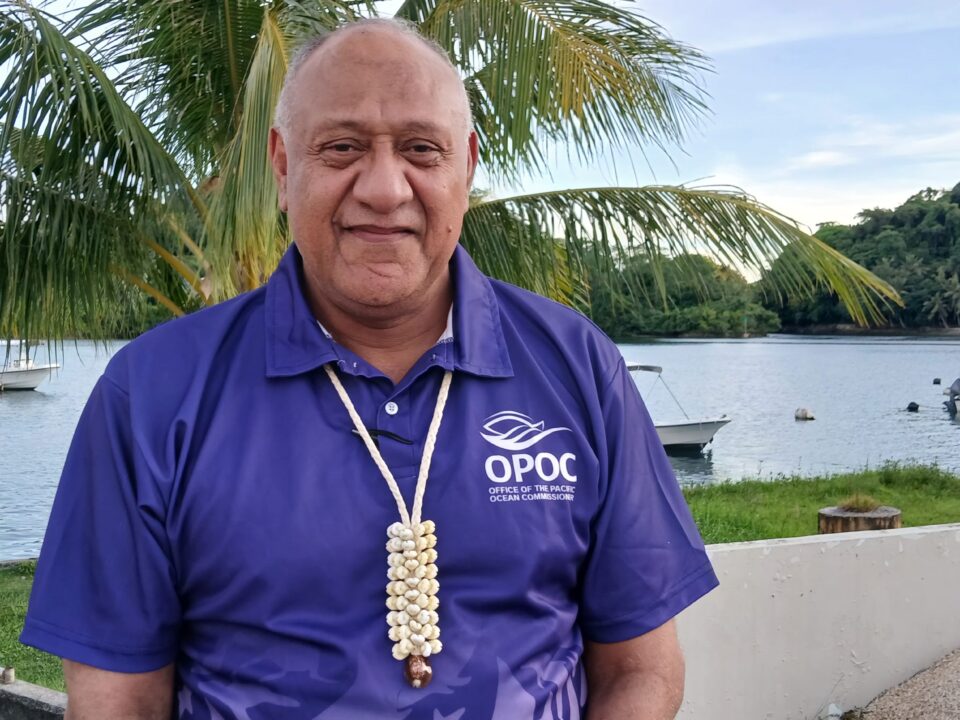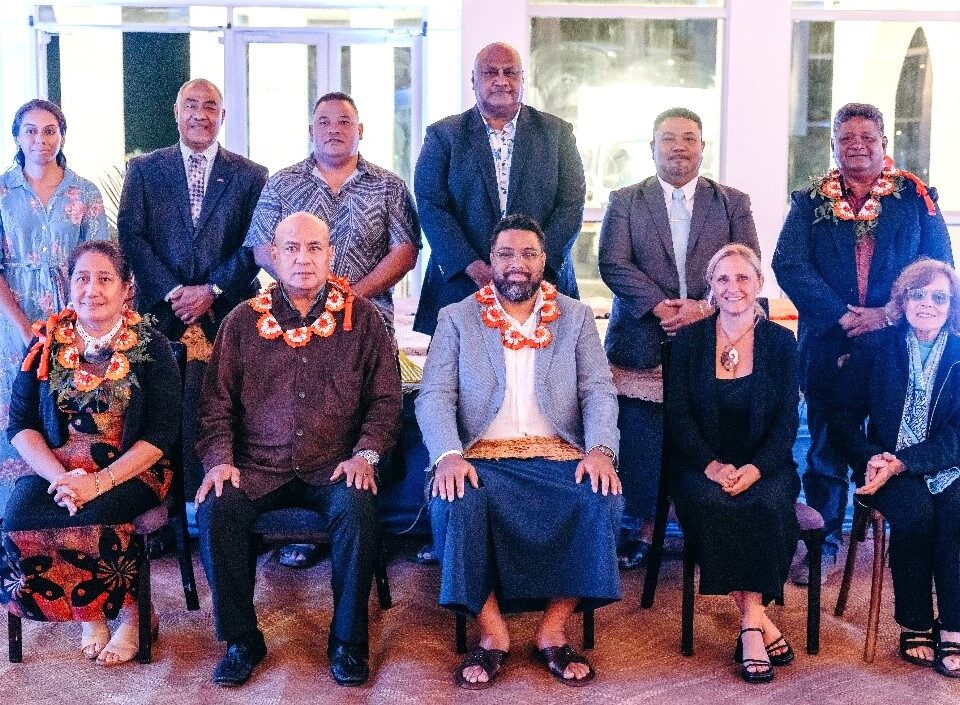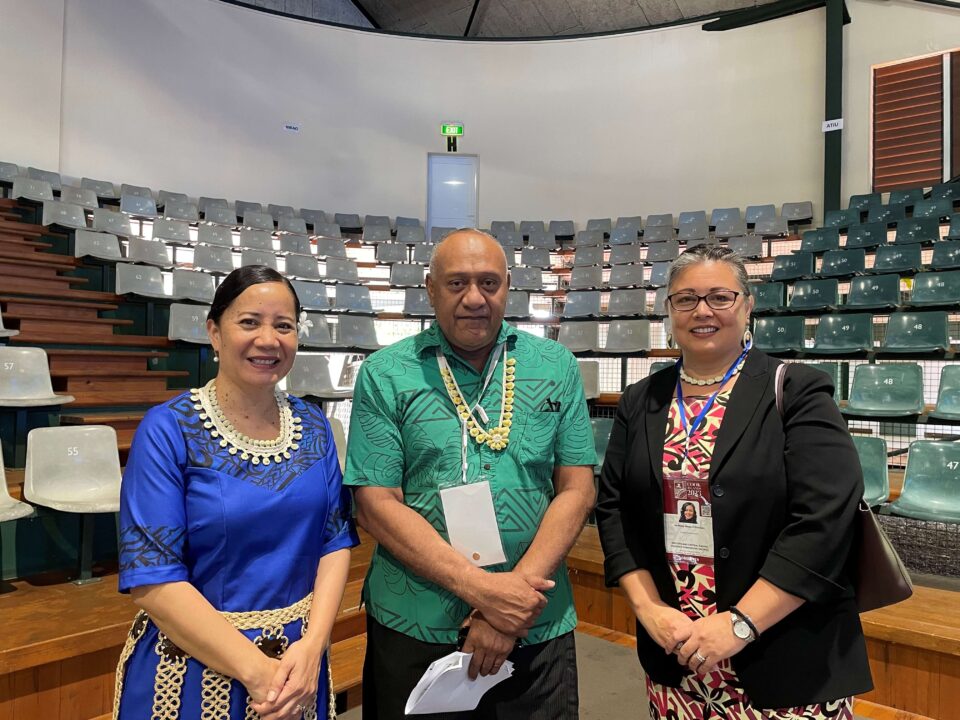
As Pacific countries prepare for the second last round of negotiations in New York next month to formalise a new global treaty to govern the high seas, there is great solidarity within the Pacific group to push for key positions to be reflected in the new agreement.
“Pacific negotiators are getting into the negotiations with an open mind – exploring as much as possible to maintain control over the management and decision making within the region while also looking to ensure the region benefits equitably from what will be the new global agreement. There is no level playing field for the region in terms of accessing the high seas as the larger developed countries have the means to do this and not us, said Peni Suveinakama, the Oceans Analyst and Manager of the Office of the Pacific Oceans Commissioner (OPOC) based at the Pacific Islands Forum Secretariat in Suva.
The OPOC office through PIFS, amongst others provide the coordination mechanism as mandated by Forum leaders to ensure expertise from regional organisations and the wider range of stakeholders’ support Forum member countries on cross-sectoral and multi-stakeholder oceans issues such as biodiversity beyond national jurisdiction.
“The Pacific is very active in the negotiations at the Intergovernmental Conference (IGC). They have well developed positions and state negotiators have been able to articulate their positions well because of the preparations that have been ongoing in the region. The form process of negotiations has been on-going since 2016 and the Pacific has been consistently building their positions throughout. If and when the need arises for more technical or legal advice on certain issues, member states refer to OPOC and we then reach out to our partners through the Pacific Oceans Alliance (POA) and through other well-established regional organisations to assist members.
“I can say one of the key positions for the Pacific relate to traditional knowledge and the recognition of traditional knowledge holders. The Pacific is discussing how traditional knowledge aspect this proposed treaty can recognize traditional knowledge holders and also see how this knowledge can complement science. Over time, this issue is slowly starting to attract a lot of other countries that value traditional knowledge and indigenous peoples, Suveinakama told PACNEWS.
One of the examples of traditional knowledge that Pacific countries are pushing for in the negotiations is the identification of Marine Protected Areas (MPAs) as a method of managing and conserving fish and other resources within specific marine areas of the high seas.
“The way resource owners declare a taboo, we recognise that it can also be done in the high seas where you deal with certain species in certain seasons or decline in certain marine resource, said Suveinakama.
He said most member countries are also mindful of the critical importance of the fishing industry in the social, economic and political development of their economies – and negotiators reflect that in pushing their national positions.
“Most of the regional positions are to protect regional countries fishing interests, particularly as most countries are reliant on fisheries as the major contributing sector to their respective GDPs. Fisheries interest is always high in the minds of the negotiators to ensure that we don’t undermine any of the good initiatives that governments undertake and are benefiting from.
As the 193-member countries of the United Nations prepare for the final round of negotiations, Pacific members have shown great solidarity in negotiating as a block, including under the leadership of Pacific Small Island Developing States (PSIDS) diplomats based in New York.
“Pacific countries ensure that they retain regional solidarity in the negotiations – ensuring what is agreed at the global level does not undermine regional work. They are moving as a collective block and solidarity continues to prevail throughout the negotiations, Suveinakama told PACNEWS.
The second last intergovernmental conference will be convened in August to debate the draft text from the chair before a decision is made on concluding negotiations to finalise an international legally binding treaty in the first quarter of next year.
“We brought all our negotiators here in Suva this week for a meeting to prepare and discuss regional issues and positions as they prepare for the second last round of negotiations in August. Now that we are heading towards the conclusion of the negotiations, the challenge for the Pacific is to maximise the opportunities and benefits for us, learning from previous negotiations of UN Convention on the Law of the Sea (UNCLOS) and the Fish Stocks Agreement.
The new global treaty will govern the conservation and sustainable use of biodiversity in the high seas and help address emerging threats to and uses of biodiversity. The new treaty will come under the UN Convention on the Law of the Sea (UNCLOS) and is expected to apply only to areas beyond state’s jurisdiction areas.
Published: Pacific Islands News Association (PINA)



